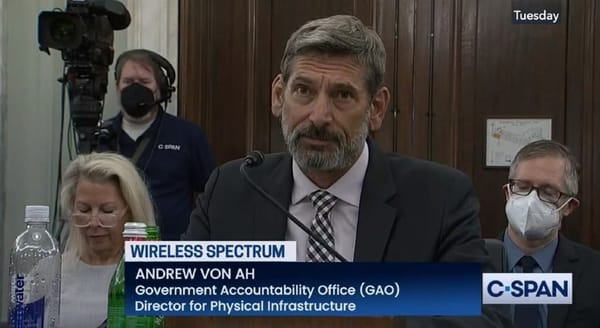Carr's DEI Crackdown via Merger Reviews Faces Expert Pushback
Panelists criticized Carr’s tactics as vague, politically driven, and lacking in clear legal grounding.
Broadband Breakfast

WASHINGTON, April 18, 2025 — Experts voiced concerns Wednesday over the Federal Communications Commission’s use of merger reviews to challenge corporate diversity, equity and inclusion policies - even as they diverged sharply on whether DEI efforts themselves are constitutional.
FCC Chair Brendan Carr has recently launched several probes into companies whose diversity initiatives allegedly constitute “invidious discrimination” under federal law - and signaling that such practices could jeopardize approval of pending mergers.
Speaking during a Broadband Live panel, both Matt Wood of Free Press and James Copland of the Manhattan Institute criticized Carr’s tactics as vague, politically driven, and lacking in clear legal grounding. But where Wood defended corporate DEI programs as essential to correcting longstanding disparities, Copland argued that many such initiatives are themselves unlawful and should face more - not less - scrutiny.
 Broadband BreakfastMatt Wood
Broadband BreakfastMatt Wood
In a letter outlining the FCC’s probe into Disney’s employment practices, Carr cited Section 1 of the Communications Act - a foundational statute that requires communications services be provided to all Americans “without discrimination” - as legal justification.
Wood called the move a misapplication of the law. “It’s really sleight of hand,” he said. “What crimes are these companies accused of committing?” He described Carr’s efforts as part of a “broad and diffuse” campaign to pressure companies into abandoning DEI principles. “It's a bizarre world we find ourselves in where Republicans who in the past have espoused [...] pro business viewpoints are suddenly saying [...] if you want your deal to go through, you better bend the knee,” Wood said.
Copland agreed that using merger review as a vehicle for political signaling sets a dangerous precedent, but he argued that the underlying DEI programs - particularly those involving race-based classifications - already conflict with Supreme Court precedent. He pointed to the 1995 decision Adarand Constructors v. Peña, which requires any race-based classification by the government to meet strict scrutiny. “Since 1995 it’s been clearly the law that this sort of racial bean counting… is unconstitutional,” he said.
“There's no capacity ever to use race but it has to be remedial,” Copland argued. ”It has to be clearly linked to a discriminatory practice and [...] designed to undo that discriminatory practice."
Timothy Simon, a former commissioner on the California Public Utilities Commission, challenged both Carr’s legal authority and the broader narrative that DEI is inherently unlawful. “There is no court ruling that says DEI is illegal,” he said. “And if it is, that should be determined by a tribunal of competent jurisdiction.”
Simon warned that companies reversing their diversity efforts in response to federal pressure could face resistance from local officials and regulators. “You’re going to have to explain to that Latino or African-American or woman chair why you’ve taken the position that DEI is illegal,” he said.
The conversation also touched on the Supreme Court’s decision to overturn affirmative action in college admissions, with panelists debating how that ruling applies to private-sector DEI initiatives. Copland contended that companies receiving federal licenses or contracts are still bound by constitutional limits. “Where the government’s putting its imprimatur on it — if it’s federal contracting or federal licensing or things like this — it’s going to have that same strict scrutiny standard,” he said.
However, Simon cautioned against regulatory overreach absent specific legal findings, emphasizing the need for more “precise determinations” of what violations have actually occurred. Failure to do so, he warned, could have national implications - particularly by limiting participation in broadband infrastructure.
“If we do not have the on-ramps, particularly in broadcast communication and broadband, to bring in other communities, we will see that we're bringing in foreign employees, foreign expertise - and that, I will say, is a national security risk,” said Simon.
Watch Full Video:
 Broadband BreakfastMatt Wood
Broadband BreakfastMatt Wood








